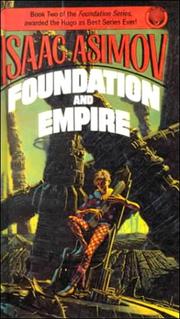


Goyer-who’s best known for co-writing “ The Dark Knight” with Christopher Nolan-has not only adapted Asimov’s saga but overhauled it. (Asimov kept writing prequels and sequels until his death, in 1992.) Yet the series’ onscreen presence has been restricted to its influence on other science-fiction sagas, especially “ Star Wars.” Zealously noting these homages, Asimov fans have waited decades for their own epic. Asimov’s saga has been enormously popular since the publication of its first trilogy-“ Foundation” (1951), “ Foundation and Empire” (1952), and “ Second Foundation” (1953)-which sold millions of copies. This is no invitation to cinematic extravagance. They are ordinary scholars, traders, politicians, and scientists: the tale spans light-years and millennia, but never forgets its human proportions. (“I was so sorry afterward I had not counted the number of spaceships that had exploded,” Asimov wrote in a withering review of the 1978 movie “ Battlestar Galactica.”) Their appeal is subtler, relying on the tension between Seldon’s plan and the individuals caught in its weave. The novels conspicuously lack aliens, mysticism, and other space-opera standbys, not least battle scenes. The Foundation confronts barbarian kingdoms, imperial revanchists, and shadowy telepaths who elude psychohistory’s grasp. Left ignorant of its details (such knowledge would play havoc with prediction), each generation must solve its own crises. His followers establish a Foundation on the frontier world of Terminus-a colony tasked with conserving all human knowledge-where they spend the next millennium fulfilling “Seldon’s plan” to reunite the galaxy.

“The storm-blast whistles through the branches of the Empire even now.” “Interstellar wars will be endless,” he warns. Its inventor, Hari Seldon, lives in a twelve-thousand-year-old galactic empire, which, his equations reveal, is about to collapse. Isaac Asimov’s classic saga revolves around the dismal science of “psychohistory,” a hybrid of math and psychology that can predict the future. An innocent viewer of the new Apple TV+ series “Foundation”-a lavish production complete with clone emperors, a haunted starship, and a killer android who tears off her own face-might be surprised to learn that the novels it’s based on inspired Paul Krugman to become an economist.


 0 kommentar(er)
0 kommentar(er)
